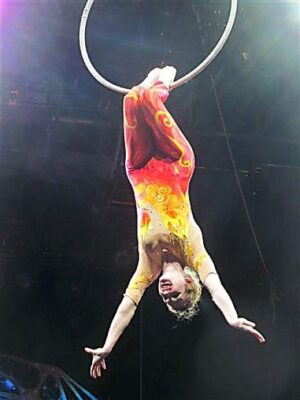10.02.23Reading Comprehension Breakdowns are Often Knowledge-Problems Disguised As Skill Problems. An example.

Different from a magician.
I watched a fascinating moment in a reading classroom last week.
The class (third grade) was reading Charlotte’s Web when they came across this scene:
“But Charlotte,” said Wilbur, “I’m not terrific.”
“That doesn’t make a particle of difference,” replied Charlotte. “Not a particle. People believe almost anything they see in print. Does anybody know how to spell terrific?”
“I think,” said the gander, “It’s tee double ee double rr double rr double eye double see see see see see.”
“What kind of acrobat do you think I am?” said Charlotte in disgust.
The teacher paused here and asked why Charlotte was disgusted with the gander.
Two students responded. The first said because the gander always talked to much. The second because the gander always said everything three times.
Both of which are true and both of which are wrong.
It would have been easy to assume that the problem was skill-based: that the students didn’t understand something about Charlotte’s perspective, that they didn’t understand something about how to infer a character’s point of view.
But the teacher asked a simple question: Who knows what an acrobat is?
There were a smattering of hands but not many. A boy responded: “It’s a little bit like a magician.”
Revelation: The problem was not a skill problem. It was a knowledge problem. The class did not know what an acrobat was. If you don’t know what an acrobat is you don’t know that Charlotte is disgusted because the gander’s very long spelling of the word implies lots of work hanging precariously from a web. And asking a bunch of “what might Charlotte be feeling?” questions or discussing how to make an inference about character won’t help.
I suspect this is a chronic problem in the teaching of reading. We see reading comprehension issues as skill-based problems when in fact they are knowledge-based, but because we, as teachers, have more knowledge than our students, we can be blind to the gaps. This is sometimes called the curse of expertise or the curse of knowledge. It’s actually quite difficult in the moment to ask about the knowledge gaps because it’s hard to see them. It might never cross a teacher’s mind —that kids wouldn’t know what an acrobat is.
So A+ to the teacher I observed for her question.
But what to do next?
The teacher in this case asked students to discuss with their partner what an acrobat might be and here I thought: good but not great. They were mostly guessing. Best, I think would be to provide a definition of acrobat: “a person who performs skillful moves in the air, like in a circus,” perhaps. Maybe even with a picture like the one above. Then: “Write that in the margin. Great. Why might writing the word the gander has proposed require Charlotte to be an acrobat? Why might it disgust her?”
This, I would argue, is a knowledge-based solution. Give students the knowledge they lack. Ask them to apply it to the problem.
Doug—Great example of how knowledge gaps can impede comprehension! All I can add is that GUESSING IS A WASTE OF TIME. Sorry for shouting, but I feel very strongly about this: There. Is. No. Point. And in fact random guesses can solidify misinformation/misunderstandings.
INFERRING based on some clue (eg, a photo of an acrobat), by contrast, is productive.
That is all.
ST
OMG I am a special education teacher now consigned to being an intensive reading teacher to 6th grade kids. I’ve been screaming to anyone willing to listen that its not the skillset but the background experience they lack to get them up to to par with the reading. Yes, fluency, yes prosody and yes, yes, yes vocabulary. But, without that background what use is anything else to g e t the skill based learning to mesh..
I’m just saying.